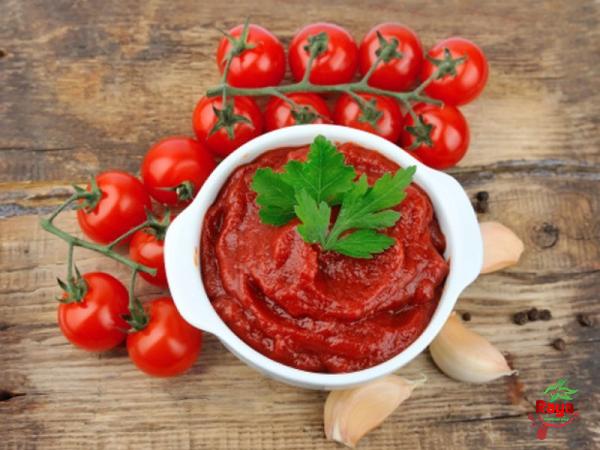Canned diced tomatoes have become a staple ingredient in kitchens all around the world. They are versatile, convenient, and offer a wide range of health benefits. This article will explore the history, production process, nutritional value, and uses of canned diced tomatoes. Canned diced tomatoes have a long history, dating back to the late 1800s. The development of the canning process revolutionized the preservation of food and allowed for tomatoes to be enjoyed all year round. Today, canned diced tomatoes are a common sight in grocery stores and are used in various cuisines. The production process of canned diced tomatoes starts with ripe tomatoes being harvested and sorted. They are then washed, peeled, and diced before being cooked. The diced tomatoes are then packed into cans, along with tomato juice and a small amount of added salt or other seasonings to enhance the flavor. The cans are sealed and processed in high-temperature conditions to ensure the elimination of any bacteria or microorganisms that could cause spoilage. Canned diced tomatoes are rich in nutrients and offer several health benefits. They are an excellent source of vitamins A and C, which are crucial for immune function and overall health. They also contain lycopene, a powerful antioxidant that has been linked to a reduced risk of certain types of cancer. Additionally, canned diced tomatoes are a good source of fiber, potassium, and magnesium, which contribute to heart health and proper digestion. The versatility of canned diced tomatoes makes them a pantry staple for many home cooks. They can be used in a wide variety of recipes, including soups, stews, sauces, and salsas. The diced form of the tomatoes makes them easy to incorporate into dishes or add as a garnish. The natural acidity of the tomatoes also acts as a flavor enhancer, making them a popular ingredient in Italian and Mexican cuisines. Canned diced tomatoes have also gained popularity among those following specific dietary restrictions. They are a suitable option for vegetarians and vegans, as they provide a rich source of important nutrients without any animal products. Canned diced tomatoes are also gluten-free and can be included in gluten-free recipes. When purchasing canned diced tomatoes, it is important to read the label and choose a product with minimal additives and preservatives. Opting for organic varieties can also ensure the absence of any pesticides or chemicals. Additionally, selecting cans with BPA-free linings can provide added peace of mind. In conclusion, canned diced tomatoes are a versatile ingredient that offers convenience and health benefits. Their long shelf life and ability to be enjoyed all year round make them a popular choice among home cooks. Whether used in soups, sauces, or salsas, canned diced tomatoes bring a burst of flavor and essential nutrients to any dish.1. The Growing Demand for Canned Diced Tomatoes

tomato paste
 Canned diced tomatoes have witnessed a surge in demand in recent years, driven by various factors. Firstly, the increasing preference for convenience foods has contributed to the popularity of canned products, including diced tomatoes. Busy lifestyles and time constraints have led consumers to seek out ready-to-use ingredients that streamline meal preparation. Canned diced tomatoes save time and effort, as they eliminate the need to peel, dice, and cook fresh tomatoes. Moreover, the versatility of canned diced tomatoes makes them an essential ingredient in many households. They serve as a foundation for a variety of dishes, from pasta sauces and chili to soups and salsas. This versatility caters to the diverse culinary preferences and dietary needs of consumers, making canned diced tomatoes a must-have pantry staple. 2. Heightened Focus on Healthy Eating and Nutrition The increasing emphasis on healthy eating and nutrition has also played a significant role in the popularity of canned diced tomatoes. Consumers are more conscious about the ingredients they use and are seeking out products that offer nutritional benefits. Canned diced tomatoes fit the bill as they are packed with essential vitamins, minerals, and antioxidants. Tomatoes are an excellent source of vitamins A and C, providing a boost to the immune system and promoting overall health. They are also rich in lycopene, a powerful antioxidant that has been linked to a reduced risk of certain types of cancer, including prostate and lung cancer. The fiber content in canned diced tomatoes supports digestion, while potassium and magnesium contribute to heart health. 3. The Canning Process Ensures Quality and Longevity The canning process used to create diced tomatoes ensures both quality and longevity. After being harvested and sorted, the tomatoes undergo thorough washing, peeling, and dicing before being cooked. The cooked tomatoes are then packed into cans along with tomato juice and a small amount of added salt or other seasonings. The cans are sealed and subjected to high-temperature processing, which eliminates any bacteria or microorganisms that could cause spoilage. This process ensures the safety and longevity of the product, allowing canned diced tomatoes to have a long shelf life. The intact flavor, texture, and nutritional value of the tomatoes are maintained, making them a reliable and durable ingredient. 4. Market Trends and Competitive Landscape The market for canned diced tomatoes is highly competitive, with numerous brands and varieties available. Established brands such as Hunt’s, Del Monte, and Muir Glen dominate the market, offering a wide range of options to consumers. However, smaller, artisanal brands have also emerged, catering to consumers looking for organic or specialty diced tomatoes. The increased consumer demand for organic and sustainably sourced products has prompted many companies to offer organic canned diced tomatoes. These products are made from tomatoes that are grown without the use of synthetic pesticides or fertilizers, appealing to health-conscious and environmentally conscious consumers.
Canned diced tomatoes have witnessed a surge in demand in recent years, driven by various factors. Firstly, the increasing preference for convenience foods has contributed to the popularity of canned products, including diced tomatoes. Busy lifestyles and time constraints have led consumers to seek out ready-to-use ingredients that streamline meal preparation. Canned diced tomatoes save time and effort, as they eliminate the need to peel, dice, and cook fresh tomatoes. Moreover, the versatility of canned diced tomatoes makes them an essential ingredient in many households. They serve as a foundation for a variety of dishes, from pasta sauces and chili to soups and salsas. This versatility caters to the diverse culinary preferences and dietary needs of consumers, making canned diced tomatoes a must-have pantry staple. 2. Heightened Focus on Healthy Eating and Nutrition The increasing emphasis on healthy eating and nutrition has also played a significant role in the popularity of canned diced tomatoes. Consumers are more conscious about the ingredients they use and are seeking out products that offer nutritional benefits. Canned diced tomatoes fit the bill as they are packed with essential vitamins, minerals, and antioxidants. Tomatoes are an excellent source of vitamins A and C, providing a boost to the immune system and promoting overall health. They are also rich in lycopene, a powerful antioxidant that has been linked to a reduced risk of certain types of cancer, including prostate and lung cancer. The fiber content in canned diced tomatoes supports digestion, while potassium and magnesium contribute to heart health. 3. The Canning Process Ensures Quality and Longevity The canning process used to create diced tomatoes ensures both quality and longevity. After being harvested and sorted, the tomatoes undergo thorough washing, peeling, and dicing before being cooked. The cooked tomatoes are then packed into cans along with tomato juice and a small amount of added salt or other seasonings. The cans are sealed and subjected to high-temperature processing, which eliminates any bacteria or microorganisms that could cause spoilage. This process ensures the safety and longevity of the product, allowing canned diced tomatoes to have a long shelf life. The intact flavor, texture, and nutritional value of the tomatoes are maintained, making them a reliable and durable ingredient. 4. Market Trends and Competitive Landscape The market for canned diced tomatoes is highly competitive, with numerous brands and varieties available. Established brands such as Hunt’s, Del Monte, and Muir Glen dominate the market, offering a wide range of options to consumers. However, smaller, artisanal brands have also emerged, catering to consumers looking for organic or specialty diced tomatoes. The increased consumer demand for organic and sustainably sourced products has prompted many companies to offer organic canned diced tomatoes. These products are made from tomatoes that are grown without the use of synthetic pesticides or fertilizers, appealing to health-conscious and environmentally conscious consumers.
Specifications of tomato paste
 Additionally, private label brands offered by grocery store chains have gained popularity, providing consumers with cost-effective options. These brands often meet the same quality standards as national brands but offer a more affordable alternative. 5. Packaging Innovations and Consumer Preferences Packaging plays a crucial role in attracting consumers to canned diced tomatoes. Eye-catching labels and designs that showcase the product’s freshness and quality are highly appealing. Additionally, resealable can lids and easy-to-open cans enhance convenience and address consumer preferences for ease of use and storage. In recent years, there has been a growing demand for BPA-free canned products. Bisphenol A (BPA) is a chemical commonly used in can linings but has raised concerns about potential health risks. Companies have responded to this demand by introducing cans with BPA-free linings, offering consumers a safer choice. 6. Utilizing Marketing Strategies to Boost Sales Effective marketing strategies are crucial for producers and brands to stay competitive in the canned diced tomato market. Advertising campaigns highlighting the convenience, versatility, and health benefits of the product can resonate with consumers and drive sales. Social media platforms can be utilized to create engaging content, share recipes, and encourage consumer interaction. Collaborations with chefs, food bloggers, or influencers can also amplify brand visibility and create a positive association with the product. Product demonstrations, recipe videos, and cooking competitions can be organized to showcase the endless culinary possibilities with canned diced tomatoes. 7. Expanding the Product Range to Meet Consumer Preferences To cater to evolving consumer preferences and meet the demands of a diverse market, many brands have expanded their product range beyond traditional canned diced tomatoes. This includes offering options with added ingredients, such as diced tomatoes with green chilies, onions, or garlic, which provide convenience and added flavor. Brands have also introduced fire-roasted diced tomatoes, which add a smoky and more intense flavor profile to dishes. These variants cater to consumers seeking unique taste experiences and offer a point of differentiation in the market. Furthermore, organic, low-sodium, and no-sugar-added versions of canned diced tomatoes have been introduced to cater to specific dietary needs and preferences. This expansion of product options allows brands to capture a larger share of the market and satisfies the demand for specialized products.
Additionally, private label brands offered by grocery store chains have gained popularity, providing consumers with cost-effective options. These brands often meet the same quality standards as national brands but offer a more affordable alternative. 5. Packaging Innovations and Consumer Preferences Packaging plays a crucial role in attracting consumers to canned diced tomatoes. Eye-catching labels and designs that showcase the product’s freshness and quality are highly appealing. Additionally, resealable can lids and easy-to-open cans enhance convenience and address consumer preferences for ease of use and storage. In recent years, there has been a growing demand for BPA-free canned products. Bisphenol A (BPA) is a chemical commonly used in can linings but has raised concerns about potential health risks. Companies have responded to this demand by introducing cans with BPA-free linings, offering consumers a safer choice. 6. Utilizing Marketing Strategies to Boost Sales Effective marketing strategies are crucial for producers and brands to stay competitive in the canned diced tomato market. Advertising campaigns highlighting the convenience, versatility, and health benefits of the product can resonate with consumers and drive sales. Social media platforms can be utilized to create engaging content, share recipes, and encourage consumer interaction. Collaborations with chefs, food bloggers, or influencers can also amplify brand visibility and create a positive association with the product. Product demonstrations, recipe videos, and cooking competitions can be organized to showcase the endless culinary possibilities with canned diced tomatoes. 7. Expanding the Product Range to Meet Consumer Preferences To cater to evolving consumer preferences and meet the demands of a diverse market, many brands have expanded their product range beyond traditional canned diced tomatoes. This includes offering options with added ingredients, such as diced tomatoes with green chilies, onions, or garlic, which provide convenience and added flavor. Brands have also introduced fire-roasted diced tomatoes, which add a smoky and more intense flavor profile to dishes. These variants cater to consumers seeking unique taste experiences and offer a point of differentiation in the market. Furthermore, organic, low-sodium, and no-sugar-added versions of canned diced tomatoes have been introduced to cater to specific dietary needs and preferences. This expansion of product options allows brands to capture a larger share of the market and satisfies the demand for specialized products.
buy tomato paste
 8. The Impact of COVID-19 on the Canned Diced Tomato Market The COVID-19 pandemic has had a significant impact on the global food industry, including the canned diced tomato market. With stay-at-home orders and restrictions on dining out, there has been an increased demand for pantry staples and ingredients that can be stored for longer periods. Canned diced tomatoes have witnessed a surge in sales as consumers stock up on essential pantry items. The product’s long shelf life and versatility provide a sense of security during uncertain times. Producers and brands have ramped up production to meet the increased demand, ensuring adequate supply to meet consumer needs. 9. Challenges and Opportunities in the Market While the market for canned diced tomatoes presents numerous opportunities, producers face several challenges. The price of fresh tomatoes and fluctuations in the cost of raw materials can impact profitability. Additionally, the need to ensure a consistent supply of high-quality tomatoes and maintain stringent quality control throughout the production process is a challenge faced by all producers. However, there are opportunities for growth and expansion. Producers can leverage the increasing demand for organic and sustainably sourced products by offering more options in this category. Innovation in packaging, such as eco-friendly and sustainable materials, can also attract environmentally conscious consumers. 10. Conclusion Canned diced tomatoes have become a pantry staple for many households, offering convenience, versatility, and nutritional value. The consistent quality, longevity, and safety ensured by the canning process make them a reliable ingredient to incorporate into a variety of recipes. With the increasing focus on healthy eating and the need for time-saving solutions, the demand for canned diced tomatoes is expected to continue to grow. Producers and brands can leverage market trends, employ effective marketing strategies, and expand their product range to capitalize on this growing popularity.
8. The Impact of COVID-19 on the Canned Diced Tomato Market The COVID-19 pandemic has had a significant impact on the global food industry, including the canned diced tomato market. With stay-at-home orders and restrictions on dining out, there has been an increased demand for pantry staples and ingredients that can be stored for longer periods. Canned diced tomatoes have witnessed a surge in sales as consumers stock up on essential pantry items. The product’s long shelf life and versatility provide a sense of security during uncertain times. Producers and brands have ramped up production to meet the increased demand, ensuring adequate supply to meet consumer needs. 9. Challenges and Opportunities in the Market While the market for canned diced tomatoes presents numerous opportunities, producers face several challenges. The price of fresh tomatoes and fluctuations in the cost of raw materials can impact profitability. Additionally, the need to ensure a consistent supply of high-quality tomatoes and maintain stringent quality control throughout the production process is a challenge faced by all producers. However, there are opportunities for growth and expansion. Producers can leverage the increasing demand for organic and sustainably sourced products by offering more options in this category. Innovation in packaging, such as eco-friendly and sustainable materials, can also attract environmentally conscious consumers. 10. Conclusion Canned diced tomatoes have become a pantry staple for many households, offering convenience, versatility, and nutritional value. The consistent quality, longevity, and safety ensured by the canning process make them a reliable ingredient to incorporate into a variety of recipes. With the increasing focus on healthy eating and the need for time-saving solutions, the demand for canned diced tomatoes is expected to continue to grow. Producers and brands can leverage market trends, employ effective marketing strategies, and expand their product range to capitalize on this growing popularity.









Your comment submitted.